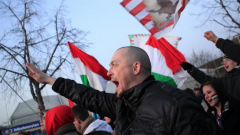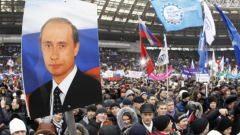Vladimir Putin’s rise to power in Russia steered the country away from liberal democracy. Personal power and calls to resist western political and economic elites have resonated across Europe. Populist politicians rally against perceived social turbulence, economic crises and migration to gain power or unprecedented popularity. We will study why powerful leaders—from Putin to Hungary’s Viktor Orbàn—have become so popular in their own countries and how they want to transform the continent. Ethnicity, race and religion—the idea of a “white, Christian” Europe—interact with a desire for seeming stability in a world gripped by rapid transformations and where the gap between have and have-nots continues to grow. The entire European project—the foundation of peace since the Second World War—now seems at risk.
This course will examine how power and populism intertwine in the context of political rivalry and cooperation within countries and across Europe. We will look at a first wave of populism after the collapse of the Soviet Union, and how Putin managed to rise from a faceless bureaucrat amid competing ideologies, economic turbulence and geopolitical challenges. Then we will turn to EU and NATO enlargement and the impact of the rapid transformation of so many Eastern European countries towards western liberal democracy and capitalism. Regional and global inequalities have also catalyzed an unprecedented movement of people across borders and prompted rising intolerance. All of this has led to rising “Euroscepticism,” economic nationalism and the upsurge of right-wing populism. We will do country-specific case studies to examine challenges such as migration policies, the treatment of minorities, anti-globalization movements and democratic backsliding. Students will think both about the causes of populism and ways to reduce the risks of extreme ideologies and actions for both domestic and international politics.

